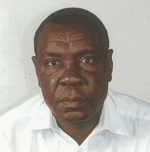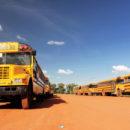Designing Limbo: IDP Camps and Urban Planning
Jim Lewis has a fascinating article in today’s New York Times–in the Architecture section. It’s called “The Exigent City” and poses the question, why are refugee camps and IDP camps designed how they are? According to the most recent estimates, refugees stay in camps for an average of seventeen years–so that camps are far from the transient places of temporary abode that we might imagine, but are in fact a different form of urban design, one designed for liminal people whom states and international organizations don’t want to admit are, in fact, long-term residents. As well as providing an important perspective on this much neglected phenomenon, Lewis provides us with some important terminology for grappling with the problems it raises–“the permanent impermanent” and “emergency urbanism” are but two examples. He concludes by quoting Cameron Sinclair, one of the founders of Architecture for Humanity, that housing the rapid influx of urban squatters and settlers is “the question of the century for those working in the built environment.”
And building homes for the three million or so Darfurians who have undergone “emergency urbanization” may become the planning question of the decade for Darfur.





